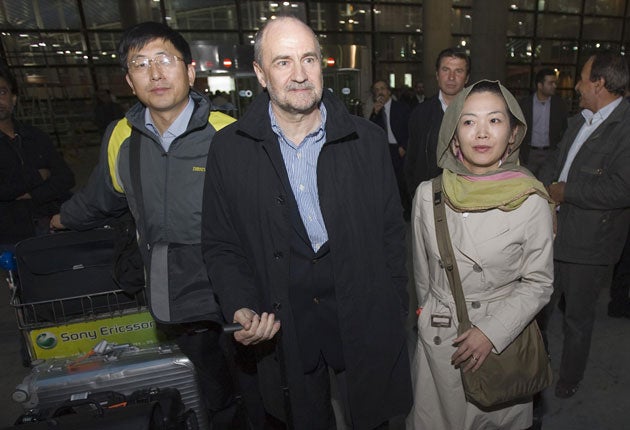First inspectors visit Iran's secret nuclear plant as talks hit deadlock
Senior politicians claim West trying to 'cheat' Tehran

UN inspectors yesterday got their first look inside a once-secret Iranian uranium enrichment plant that raised western suspicions about Tehran's nuclear programme.
The semi-official Mehr news agency reported that the four-member team had visited the heavily protected facility, carved into a mountainside north of the holy city of Qom. No results were expected until after the inspectors leave Iran by the weekend.
Iran is expected to make a decision within days on whether to accept a UN-brokered deal to process its nuclear fuel abroad, designed to ease Western fears about Iran's potential ability to produce weapons-grade material.
Iran's second enrichment facility is known as Fordo after a village believed to have the largest percentage of fighters killed in the 1980-88 war with Iraq. Tehran says that by reporting the existence of the site voluntarily to the UN's nuclear watchdog, the International Atomic Energy Agency, it "pre-empted a conspiracy" against Iran by the US and its allies who were hoping to present the site as evidence that Iran was developing its nuclear programme in secret.
The site, about 20 miles north of Qom, is protected by military installations including missile silos and anti-aircraft batteries, Iranian officials said last month. Tehran says the facility will not be operational for 18 months. The delegation from the IAEA's safeguards division is led by Herman Nackaerts, who oversees the Middle East region, including Iran.
Tehran also has promised to respond this week on a UN proposal to have its nuclear fuel processed outside the country. Iran claims it seeks only peaceful reactors for research and energy. Although it has not given its official answer on the proposed deal – discussed last week after talks in Vienna with the US, France and Russia – there are increasing doubts about agreement.
On Saturday, Parliamentary Speaker Ali Larijani claimed the West was trying to "cheat" Iran under the deal that would ship most of the country's uranium to Russia for reactor-ready enrichment. Mr Larijani, Iran's former nuclear negotiator, said Iran prefers to buy the nuclear fuel it needs for a reactor under construction that makes medical isotopes.
Rejection of the UN deal would force the US and its allies to either return to talks or step up demands for greater economic sanctions.
Subscribe to Independent Premium to bookmark this article
Want to bookmark your favourite articles and stories to read or reference later? Start your Independent Premium subscription today.

Join our commenting forum
Join thought-provoking conversations, follow other Independent readers and see their replies